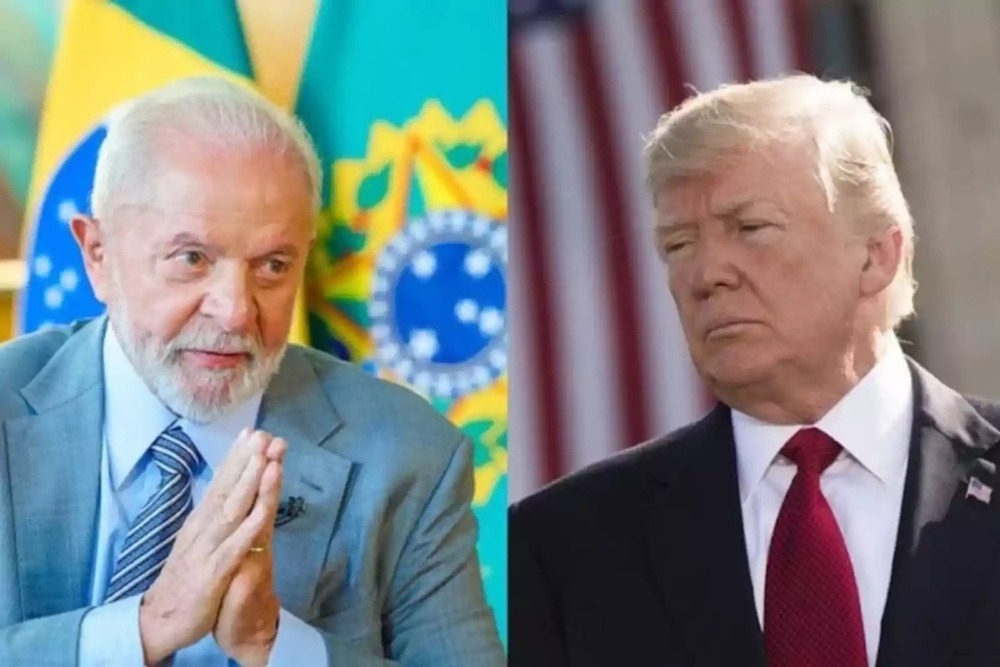Brazilian President Luiz Inácio Lula da Silva called on US President Donald Trump to remove punitive trade tariffs during their inaugural official discussions on Monday, following a period of tension between the two leaders. Both indicated the possibility of an in-person meeting in the near future. The two leaders engaged in a 30-minute discussion characterized by a “friendly tone,” during which Lula proposed the potential for a meeting in Malaysia next month, according to a statement from the Brazilian presidency. Lula “requested the removal” of tariffs imposed on his country’s products and sanctions against Brazilian officials. Trump characterized “a very good telephone call” in a post. “Further discussions are anticipated, with gatherings planned in the near future in both Brazil and the United States,” he stated, omitting additional specifics. Relations have deteriorated between Washington and Brasília in recent months, as Trump expressed frustration over the trial and conviction of his ally, the far-right former president Jair Bolsonaro.
Trump has enacted a 50-percent tariff on Brazilian products and has imposed sanctions on several high-ranking officials, including a prominent Supreme Court judge, as a response to what he described as a “witch hunt” against Bolsonaro. “We are very optimistic that we will move toward a win-win situation in this relationship,” stated Brazil’s Vice-President Geraldo Alckmin, who has been assigned the responsibility of advancing negotiations with US Secretary of State Marco Rubio. He remarked that the call had proceeded “even better than we expected” and that the two presidents had shared personal phone numbers. ‘Excellent chemistry’ The phone call followed what initially seemed to be a serendipitous meeting on the periphery of the UN General Assembly last month, prompting Trump to commend his “excellent chemistry” with Lula. However, the Estadão news site reported that the brief encounter, which included a hug, was actually the outcome of an intensive behind-the-scenes “diplomatic operation.” Lula, in a speech to the UN, condemned a “unacceptable” assault on the autonomy of Brazil’s Judiciary. In the face of considerable political and economic challenges, Brazil’s Supreme Court has imposed a 27-year prison sentence on Bolsonaro due to his involvement in an unsuccessful coup attempt following his defeat to Lula in the 2022 elections.
Trump, in his address to the UN, leveled accusations against Brazil, citing “censorship, repression” and “judicial corruption.” He subsequently altered his approach and recounted his encounter with Lula, characterizing him as “a very nice man, actually.” The two individuals occupy diametrically opposed positions regarding multilateralism, international trade, and the battle against climate change. The Brazilian presidency indicated that Lula had discussed the potential for an in-person meeting with Trump at the Association of Southeast Asian Nations summit scheduled for October in Malaysia. He reiterated an invitation to Trump to attend the COP-30 climate conference in Brazil’s Amazon city of Belem in November, “and also expressed his willingness to travel to the United States.” ‘No one to converse with’ Lula has consistently asserted that Brazil was “ready to negotiate” concerning tariffs, yet expressed disappointment that there was “no-one to talk to” in Washington. A source informed AFP that the private sector was instrumental in the behind-the-scenes efforts leading to the rapprochement with Washington, referencing a meeting between Trump and Brazil’s billionaire beef tycoon Joesley Batista at the White House. According to the source, “JBS played an important role, but it wasn’t the only one,” attributed.
A European diplomat informed AFP, speaking on the condition of anonymity, that Brazilian aircraft manufacturer Embraer had exerted pressure on the White House as well. Trump’s tariffs primarily focus on significant Brazilian exports such as beef, coffee, and sugar. Brazilian trade data for September, released Monday, indicated a 20.3 percent decline in exports to the United States compared to the previous year, while imports from the US experienced a 14.3 percent increase. Nonetheless, Brazil possesses significant markets beyond its borders, particularly in Asia, for its beef and coffee, and has been actively pursuing diversification in its export portfolio. In September, total exports experienced a growth of 7.2 percent, driven primarily by significant increases in trade with China, India, Singapore, Argentina, Peru, and Panama.

